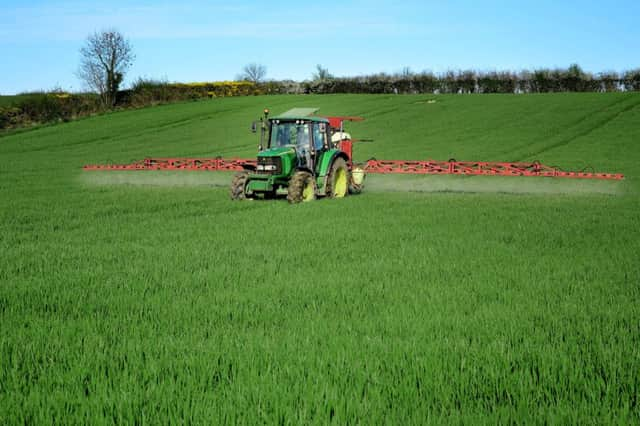UK's arable farmers alienated


It is digging an even deeper hole over its failure to stick to science over the re-licensing of glyphosate, the active ingredient in Roundup and the world’s most widely used herbicide. It has now published plans which could take a quarter of crop protection products off the market – and just to seal the deal there are question marks over whether simplification plans for greening will make it onto the agenda of the June farm council.
With no signs of compromise between member states over glyphosate it is almost certain that the Commission will have to force through the decision itself. This would be a temporary re-licensing, probably for eighteen months, until a further safety review emerges. At issue is the validity of a single report suggesting a theoretical risk between the widely used herbicide and cancer. That the Commission will have to take the decision itself, in the absence of a qualified majority from member states, underlines that science based decision making is impossible in the EU. A big question mark will remain over glyphosate, and its critics will ensure its use remains controversial, despite clear scientific evidence that re-licensing is fully justified. This reflects the Commission’s inability to impose a realistic risk/reward calculation, and its failure to recognise, yet again, the importance of having an agricultural industry that is globally competitive.
Advertisement
Advertisement
While this is a problem that will be solved, at least in the short term, a bigger issue is action against plant protection products that contain so-called endocrine disruptors. These are products that essentially have the potential to interfere with human hormones, and so affect health. The Commission has been pressed into action by a European court decision that was critical of delays in delivering legislation. It has now unveiled its plans, although it will be a long and complicated journey from this to legislation. In doing so it boasted about creating the highest standards in the world for the environment and human health – but significantly said nothing about how these plans would affect the competitive position of European agriculture.
Its draft legislation includes plans to tighten up rules on imports by reducing the maximum residue limits allowed for the banned products, but this is still a lose, lose for European agriculture. Many familiar products are in the firing line, and in total around 1300 plant protection products could be removed from the market – in many cases with no replacement, since the cost of developing new products for a limited EU market would be prohibitive. This is a victory for the environmental lobby, but while the Commission president, Jean Claude Juncker, was preening himself for such forward thinking plans he was ignoring criticism from industry groups. They have deemed the plans unworkable, warned of the impact on Europe’s ability to compete globally, and expressed scepticism about the Commission’s ability to restrict imports – not least because of the EU’s reliance on imported products, including soya.
To be fair to the Commission it can, at least, this time claim it has followed science in selecting the endocrine disruptor products – but it has failed again to analyse their risk/reward ratio. Key to this is whether a small theoretical gain for human health justifies undermining food security and the global competitive position of agriculture. This is a question the Commission cannot ignore, but it is choosing to do so, despite industry, members of the European parliament and scientists urging it to think again about this proposal.
On greening there is no question that there is a need for simplification. Arable farmers have been patient, given that plans have been delayed long after they emerged for other sectors. Farmers believe the policy is fundamentally flawed, but the Commission is unlikely to go beyond a bit of tweaking around the edges. However even that would be positive, and all the necessary stops need to be pulled out to get this onto the agenda of the farm council so that decisions can be taken in plenty of time to have them implemented for 2017 with no last minute dramas. This would bring some relief to arable farmers – but it will not compensate for the political undermining of their competitiveness by a European Commission too weak to stand up to those pursuing a green agenda.